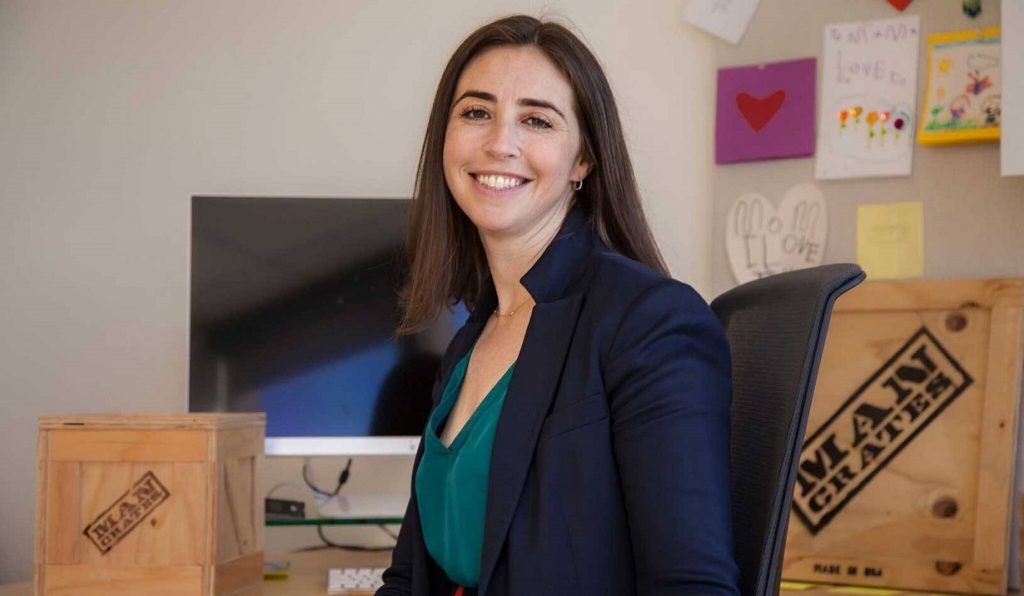Improv, Luxuries, and Napoleon: Check out These 10 Unique MBA Courses

Business can often be unfairly characterized as a dry field. But not every business school course fits the stereotype. Check out these 10 unique and interesting MBA electives.
Napoleon’s Glance
Columbia Business School offers this fascinating course in strategic intuition. The curriculum uses the teachings of early strategy literature as its foundation, though the bulk of readings and lectures are based on the content of two contemporary books on the subject: Napoleon’s Glance and The Art of What Works. William Duggan, the author of both books, leads the course. Duggan is a strategy expert and won the Dean’s Award for Teaching Excellence in 2014.
Food and Agribusiness
This Harvard Business School course allows MBA’s to delve into the study of the global food industry. This course is helpful for B-schoolers specifically seeking a career in agriculture, or simply those pursuing consulting or investment banking, since the food industry is so expansive. The course explores the nuances of agribusiness, including how the once strictly local industry has become increasingly globalized.
Luxury Marketing
Another eyebrow-raising Harvard Business School course, Luxury Marketing helps students understand the nuances of luxury brand management. Specifically, the class will be structured in terms of three larger topics: The art of creating luxury brand equity, understanding the luxury sector, and the future of luxury. The course has seen lecturers like world-famous fashion blogger Chiara Ferragni.

HBS doesn’t just offer traditional MBA courses. Students interested in the finer things can also study Luxury Marketing.
Improvisational Leadership: In the Moment Leadership Skills
Improv as a means of facilitating team building and creative thinking is a growing trend in business. That’s why MIT’s Sloan School of Management offers an entire course on improv in business. The first two weeks essentially function like an Improv 101 course, with students learning the fundamental principles of improvisational performance. The subsequent four weeks focus on application, allowing students to practice applying improv principles to real-world business decisions.
Sure, it’s not Second City, so don’t expect students to make a Comedy Bang! Bang! appearance any time soon, but the course can help one develop skills not actively taught at most other business schools.
Leveraging Neuroscience for Business Impact
At University of Pennsylvania’s Wharton School, the faculty understands the value of understanding the human brain in honing business acumen. This course demonstrates just that, as it educates MBA’s in the most recent neuroscience breakthroughs and how this information can be used to predict consumer behavior, manage employees, build teams, and enhance workplace productivity, as well as honing leadership skills.
Next Gen Fashion Retail
Though clothing fads aren’t the first thing people usually associate with MBA education, fashion is its own industry, and a cutthroat one at that. As part of its Luxury and Fashion MBA, New York University’s Stern School of Business offers a course on the future of fashion retail. In this course, students learn about the ever changing fashion landscape and the challenges that lie ahead as the internet cuts out the middleman between brand and customer.
Creativity
Though analytical thinking is important for many aspects of business, creativity is the driving force behind most innovation and problem-solving. NYU Stern’s Creativity class nurtures students’ potential for true out-of-the-box thinking in both work and life. MBA’s learn about the science of creativity and experiment with different creative approaches to problems.
Nobel Thinking
In the Nobel Thinking course at London Business School, students use actual Nobel Prize-winning topics to explore what makes a groundbreaking idea and how to emulate the type of thinking that leads to real breakthroughs. Each session chooses a topic, led by a faculty member, and explores the idea, motivations, and contributions that led to the Nobel award. The elective makes full use of LBS’s notable faculty as well as a number of guest lecturers.
The Nobel Thinking course at LBS utilizes the school’s vast array of celebrated guest lecturers.
Self Awareness
London Business School also offers a Self Awareness course that helps B-schoolers learn about themselves, and their own needs and motivations. Though studying self awareness may seem more like therapy than school, more and more MBA programs are emphasizing the value of authenticity in business. Relationships are essential in business, and the Self Awareness elective trains students to understand how they are perceived by others, so they can build connections and trust as they navigate their industry.
Cleantech to Market
At UC Berkeley’s Haas School of Business, MBA’s who take the Cleantech to Market course get to team up with scientists from the Lawrence Berkeley National Laboratory to work on marketing advances in in solar, biofuel, battery, and smart grid/energy management tech. Business students help scientists commercialize the latest advances in sustainability.

The UC Berkeley Haas School of Business Cleantech to Market bridges the talent’s of the schools MBA candidates and scientists from the Lawrence Berkeley National Laboratory.
Stanford Salutes Fallen Alum, and More – San Francisco News

From new courses to lasting tributes, San Francisco business schools have had no shortage of headlines in recent weeks. Here are some of the biggest stories out of the Bay Area.
A Lasting Tribute to Jack McDonald — Stanford Newsroom
Nearly 500 Stanford Graduate School of Business faculty, alumni, and associates recently held a two-part celebration in remembrance of John “Jack” McDonald, who passed away earlier this year. McDonald, BS ’60, MBA ’62, Ph.D. ’67, taught more than 10,000 MBA and Executive Education students during his 50-year career.
Stanford President Marc Tessier-Lavigne was among faculty members to speak during the event, highlighted McDonald’s legacy at Stanford.
“Today is a reminder of what a powerful role faculty play in the lives of our students – both while they are on campus, and for the rest of their lives,” Tessier-Lavigne said. “Jack exemplified that influence and impact, across generations.”
After the speakers, Highland Hall, one Stanford’s student housing buildings, was officially renamed to Jack McDonald Hall, while and the GSB Common to the Stanford Investors Common. McDonald Hall, along with the Schwab Residential Center, makes it possible for all first-year MBA students to live on campus if they so choose.
You can read more about McDonald’s legacy and the ceremony here.
In Big Data Course, MBAs Learn How to Second-Guess an AI — Haas News
A new story from the UC Berkeley Haas School of Business highlights a new course offered to MBAs, “Big Data and Better Decisions.” Co-taught by Assoc. Prof. Jonathan Kolstad and economist Paul Gertler, the class covers topics in advanced data science. The instructors hope that their course will help ingrain a question-the-status-quo mindset in their students so that they can then bring these data-driven initiatives to their organizations.
“There’s a growing need within companies for MBAs trained in data analytics,” Gertler said. “This class is designed to prepare students to be part of the modern labor force and leaders of industry.”
You can lean more about Kolstad, Gertler, and the new courses here.
Alan Taylor Speaks at Nobel Symposium on Money and Banking — UC Davis News
UC Davis Graduate School of Management professor Alan Taylor recently delivered an address on the “indebtedness of governments, firms, and households” at the Nobel Symposium on Money and Banking. Taylor expressed how learning from past mistakes that lead to the recent Great Recession are key in ensuring the same meltdown doesn’t happen again.
“Understanding how and why private debt crises predictably occur with consistent patterns and grave collateral damage is to my mind the big unsolved research question today in macro(economics),” he said during his address.
You can watch the entire lecture below:
The Stanford MBA Job Journey, and More – San Francisco News

Want to stay on top of the latest business school news out of Silicon Valley? We’ve got your San Francisco news covered!
Exploration Helped Her Find the Right Hands-On Job — Stanford GSB School News
Celina Johnson, Stanford GSB MBA ‘08, is currently the COO of Man Crates, a San Mateo-based company that sells gifts for men. But these aren’t just any typical gifts—they are special presents enclosed in wooden crates that recipients have to open with a crowbar. Meanwhile, gift cards come in concrete bricks that must be smashed; certainly not your average Pollyanna affair.
In a recent interview with her alma mater, she discusses not only her current role at Man Crates, but also also how her experience at Stanford helped get her there.
“In my first meeting with the Stanford GSB Career Management Center, they asked me what my goal was, and I said I wanted to work ‘at a company.’ I knew that I wanted to move out of investing. I loved the strategic part of it, but I felt that something was missing. I wanted to roll up my sleeves and execute,” Johnson says.
Johnson graduated right before the peak of the Great Recession, which, thankfully for her sake, didn’t seem to hamper her career outcome. Her first role after earning her degree was with Sears-owned Orchard Supply Hardware, which had a headquarters in nearby San Jose. She left after five years, saying “If investing was a lot of strategy and not enough execution, Orchard was a lot of execution and not enough strategy.”

Stanford ’08 MBA alum Celina Johnson, COO of Man Crates / Photo via Emily Billings
Rather than working from the ground up, Johnson felt her particularly skills were best utilized in a “company that already had product-market fit where my skills could be applied to improving the business.” Months after her Orchard Supply Hardware departure, she connected Stanford ’09 MBA alum Jonathan Beekman, who had already begun growing his Man Crates team.
You can read more about Johnson’s journey here.
Delphine Sherman Named as Haas Chief Financial Officer — Haas School News
Delphine Sherman, who graduated from the UC Berkeley Haas School of Business with an MBA in 2006, has been named as the school’s new chief financial officer. An expert in the areas of education and financial management, Sherman told her alma mater that she is excited to take on the challenges of her new job.
“It’s a very exciting time to see how far the school has come during this really challenging financial time at the university,” she said. “I’d love to capitalize on that and bring in some strategy around what we want our long-range plan to look like—diving into the long-term and where we go from here.”
Learn more about Sherman and her credentials here.
SCU’s McChesney to Lead Jesuit MBA Network — Leavey School News
Toby McChesney was recently named the chair of the Jesuit MBA Network (JEBNET) — a worldwide network made up of 27 AACSB-accredited Catholic, Jesuit institutions and three Catholic institutions, works towards helping people earn their MBA. McChesney led the graduate programs at the Santa Clara University Leavey School of Business over the past 18 months as the school’s senior assistant dean for graduate business programs. As chair, McChesney will lead these meetings and become the face of JEBNET.
“I am honored to be selected as the chair of JEBNET where I can use my expertise to ensure that the group continues to thrive in graduate management education,” said McChesney, who will serve a three year term. “I look forward to working closely with other Jesuit business school leaders in ways that will benefit the entire network over the next three years.”
Learn more about McChesney and JEBNET here.
What is the Most Valuable San Francisco MBA?

There’s no doubt: San Francisco is a great city to earn your MBA. Located near Silicon Valley, business schools throughout the area provide not only an excellent education but also opportunities to interact with many tech and industry leaders in the area. But which MBA programs in San Francisco are the best?
This is not an easy question to answer. You can check rankings, to see which MBA programs perform well based on surveys and statistics provide to The Financial Times, U.S. News and World Report, and The Economist. And that’s a great place to start, but probably the most essential value when determining the right MBA program for you is your return on investment (ROI).
The ROI of an MBA program is one of the best indicators of what your MBA is actually worth. It looks at statistics such as average salary increase, post-graduation employment, tuition cost, cost of living, and more. To help you out, we looked in-depth at the best business schools in San Francisco to see which offer the best ROI. Continue reading…
Inside the Relaunch of the Berkeley Entrepreneurship Association

Entrepreneurship at the Haas School of Business at UC Berkeley is getting an upgrade. Right now the university is working to rebrand and relaunch the Berkeley Entrepreneurship Association (BEA). While the newly updated BEA isn’t available yet, it’s in the works and will have many exciting announcements over the next weeks and months.
We were lucky enough to get an inside look at what’s coming to the BEA in a talk with Luca Cosentino, MBA’19, the President and Co-Chair of the BEA and the man behind the re-launch. Here’s the inside scoop!
MetroMBA: What is the Berkeley Entrepreneurship Association (BEA)?
Luca Cosentino: The Berkeley Entrepreneurship Association is meant to be the one-stop shop for entrepreneurship at Berkeley. Ideally, everything that happens around entrepreneurship should be coordinated or monitored by the BEA. It’s not just for business school, but also for students across the campus. It’s the umbrella under which all entrepreneurship initiatives, partners, mentors, funding, and resources will rest.
The BEA has been at Berkeley for a while as a collaborative effort, and it did a great job before, but we are adding to it. Prior to this relaunch, the BEA focused on one-off events and bringing founders to school. They did a great job regarding inspiring people to entrepreneurship. We want to keep doing what they did—the education side—but add the practical side. In this sense, the innovation is massive.
We are rebranding BEA. We are moving from one-off events to something that the potential to be around for twenty years and could be translated into a core university program matching what the University currently offers on entrepreneurship.
The one thing I want to underline is that is that every university has entrepreneurship programs where you’re matched with other people, but the value here is that we’re connecting people from different schools around the community of entrepreneurship. We are working to build the entrepreneurial community at Berkeley. The value of this community is that it won’t be agnostic to one specific initiative but will serve as an umbrella for all.
MM: Why is the BEA important and what is its goal?
LC: Before getting started with BEA, I spoke to a number of people from different business schools around the country. I wanted to know how each school dealt with entrepreneurship and how it was defined. What I noticed was that there were a bunch of great resources for helping students understand what entrepreneurship is, but it was really hard to find programs that helped students move from zero to one—from a basic idea to “Okay, let me try.” Students have access to many great initiatives where they can brainstorm and talk about their ideas, but to move from an idea to start effectively doing something around that idea is a completely different story.
We believe that if we give business students all the weapons and tools they need to start working from day zero, it’s going to have a massive impact on everyone’s career.
We also noticed that, too often, schools separate skills. For example, the computer science department is separated from the data scientist group and the information group. But we all know that entrepreneurship, great ideas, and great companies come from different skill sets, backgrounds, and diverse teams. We want to encourage that.
A student’s life is busy. Their schedule is packed, so going out and finding people that you like and that you want to work with that are aligned with your ideas is pretty difficult. We want to make this process faster. We believe that this is a great value we’re going to bring to students.
The application of the BEA is very big and far-reaching. There’s a strong impact on entrepreneurship itself, but also for employers and students. We all know that employers are keener to hire people from an entrepreneurial background. There’s a definite advantage for companies who bring on employees who have gone through capitalist discovery, testing, etc. This program really offers 360 degrees of benefits.
CA: What will the BEA offer?
MM: As an organization, we have a few missions starting this year and moving into next year.
-
Encourage Entrepreneurship
Our first mission is to encourage people to start companies. When you think about the typical MBA student who takes two years off to come to school and study, their main goal is to gain more experience and skills. Many MBA students also come to business school because they want to do something different, or possibly, follow their passions. But, when it comes to business school, entrepreneurship, generally, has a less relevant place compared to companies who offer internships or full-time positions. What we’re trying to do is encourage students to start companies and give entrepreneurship a try.
-
Create Entrepreneurial Collaboration
The main innovation that I’m most excited about and what we’re working hard to start in the fall is a program that connects students and individuals from across different schools and different backgrounds. For the first time in Berkley’s history, it will be an initiative led by students and coordinated across different schools. I believe it will be the largest program ever created at Berkeley connecting technical and business students, student clubs, VCs, mentors, funding sources, and institutions.
The goal of the program is to take great ideas and start them along the process, through customer discovery to business model evaluation. The steps are as follows:
- First, the program will allow people to present their innovative ideas.
- From there, the BEA would match the idea to a team of three or four people with different interests.
- Then, over three to four months, that team would work together to gather every resource they need to transform the idea into a workable concept company.
Currently, the program name has not been announced, but it will be released in a few weeks. For now, everything has already been put in place, and Berkeley is ready to launch their first cycle in Fall 2018.
-
Connect the Entire Entrepreneurial Community
The next focus for the BEA is to connect students with startups. There are many students and MBAs who are not 100 percent keen to start their own company but are curious about what it’s like. Our goal is to offer them a part-time experience, while in school, that offers them a unique chance to test their skills in a start-up environment.
Part of this focus will also be to connect the startup ecosystem at Berkeley. That means connecting startups, accelerators, VCs, etc. Already, we have collaborations with many different communities including:
- Participating Clubs: Computer Science Undergrad Association (CSUA), Computer Science Graduate Association (CSGSA), FemTech, Mobile Developers at Berkeley, Data Science Society, Upsilon Pi Epsilon Computer Science Honor Society, and many more coming.
- Collaborations: Xoogler community (community of ex-Googlers), Google Launchpad, Startup Grind, Dorm Fund, Sutardja Center for Entrepreneurship, SkyDeck Startup Squad, Citris Foundry, Food Club, and more.
-
Entrepreneurial Education
Finally, the last thing we’re launching is an educational program that will include courses, a new website, a new blog, and a new podcast (all launching soon) that will include information from entrepreneurs, venture capitalist, product managers, blockchain, and more.
Other educational programs that we will be launching include:
- A cross-schools educational event that we hope will help bridge the cultural gap between students in different schools.
- Life as an Entrepreneur: a seven-week class with a variety of speakers including founders, VCs, etc.
- Educational events around hot technical topics.
Currently, the Berkeley Entrepreneurship Association is still in its early relaunch phase. The newly updated website will be up in the next few weeks so check back on the school website and the Berkeley Haas Entrepreneurship Program regularly to catch its launch.
Berkeley Charity Study Examines How We Often Dehumanize Those in Need

An often-seen angle of charity is that the recipient is down on their luck, destitute, and in need of outside assistance; but that imagery may play into a indirect dehumanization of those in need, and make things worse than before, writes Berkeley University Haas School of Business assistant professor Juliana Schroeder.
Schroeder, who’s research focuses on “judgment, decision-making, and interpersonal and intergroup processes,” criticizes the way in which charities like Sally Struthers’ Christian Children’s Fund portray its aid recipients as helpless victims may “unintentionally send a signal they have low mental capacity.”
“Charities want to motivate people to give more, but they may also make people think poor people don’t have the ability to take care of themselves. If you perceive of someone as having less mental capacity to think or feel, then you are subtly degrading and dehumanizing them,” she explains.
Schroeder, along with Northwestern’s Adam Waytz and University of Chicago’s Nicholas Epley, published a new study in the Journal of Experimental Psychology, which reveals “fundamental truths about how people think about giving and receiving aid.” The researchers found that not only do people act “more paternalistically towards those they believe have lower mental capacity,” but that they also “often believe they have more mental capacity than others.”
Schroeder explains, “When you think of a person having less self-control and willpower, you think they will make bad decisions and will be more likely to waste the aid. They don’t know what is good for themselves. People are pretty convinced they have a lot of willpower, while others don’t have the same level of self-control.”
The good news is that these perceptions are malleable. By questioning them, we can begin to “question how our perceptions of ourselves and others may affect the way we behave.”
Schroeder concludes, “When you dehumanize an individual or a group it can affect how you help them. People can be more cognizant about the ways they are thinking about their own mental capacity and that of others and pause to get more information before they start helping.”
